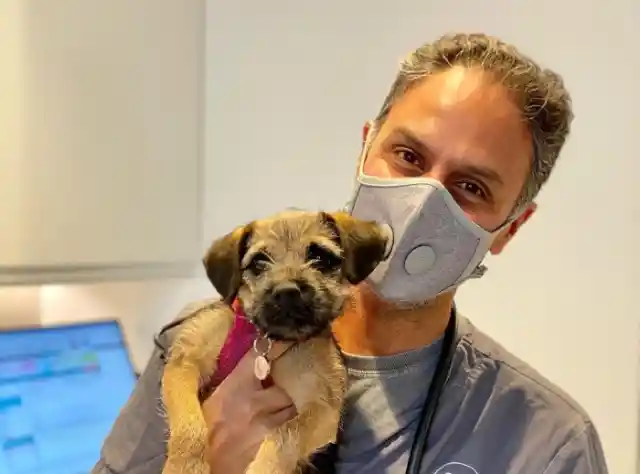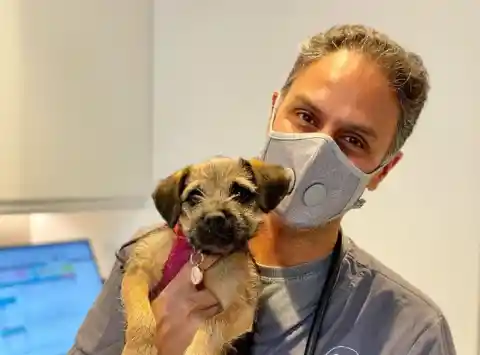There are many health problems that do not have serious warning signs attached to them but if taken leniently, they can turn fatal for your furry companion. Pancreatitis is one such problem that does not show obvious signs at first yet it is a life-threatening disease. If you go by the medical definition, pancreatitis means inflammation of the pancreas and is a fairly common disease among all ages and breeds. Since it can happen to affect any dog, every dog owner must be aware of its symptoms and know when to contact a veterinarian.
What Is Pancreatitis?
The pancreas is an organ that is responsible for releasing enzymes that help in digestion. When the pancreas is healthy and working normal, the enzymes become active only when they reach the small intestine. In a dog that has pancreatitis, these enzymes activate when they are released which results in inflammation of the pancreas and damage to the pancreas and its surrounding tissues and other organs. According, to the Whole Dog Journal, the enzymes can actually begin to digest the pancreas itself, which causes extreme pain to your dog.


Causes Of Pancreatitis
There are a number of causes and risk factors that can cause pancreatitis. However, majorly nutritional issues are connected with it. A high-fat diet is often the cause of it. History of dietary indiscretion, obesity, hypothyroidism, severe blunt trauma, diabetes mellitus, etc. is some other causes for your dog to develop this health condition. You need to understand that human food is especially dangerous for your dog even though high-fat dog food may cause pancreatitis as well.


Symptoms Of Pancreatitis
One of the key symptoms of pancreatitis is repeated vomiting and diarrhea. However, your dog might appear uncomfortable or bloated because of the pain or distention of the abdomen. Other symptoms include hunched back, loss of appetite, dehydration, weakness/lethargy, and fever.


How Veterinarians Diagnose Pancreatitis In Dogs?
If you take your dog to a veterinarian and he/she suspects that your dog might have pancreatitis, then he might go for a blood test to measure pancreatic enzymes. The vet might also go for physical examination including stomach, gums, heart, and temperature. In addition to this, he might also suggest radiographs or ultrasound to rule out other causes. Another way to diagnose is to check through fine-needle aspiration of the pancreas.


How To Differentiate Between Chronic And Acute Pancreatitis?
In the case of acute pancreatitis, the attack comes immediately with no previous appearance of the condition before. In case the inflammation spreads, it can become life-threatening to other organs as well. On the other hand, chronic pancreatitis is a condition that is developed over time, slowly, and often without symptoms. This results from repeated periods of acute pancreatitis. Both acute and chronic forms can be either severe or mild, and both result in pain.


How To Treat Pancreatitis?
While treating pancreatitis, the priority is to control the dog’s pain and then to prevent further complications. Usually, veterinarians give Intravenous (IV) fluid therapy in case of severe pancreatitis. In addition to this, medication is administered to the dog for vomiting and to prevent dehydration. The veterinarian might tell you to withhold water and food for your dog for 24 hours. In the long term, smaller and frequent meals might be suggested to improve your dog’s health condition and to keep him comfortable.


Are Supplements Useful In Managing And Preventing Pancreatitis?
Pancreatitis is a serious condition, so you should not go for home remedies or medicines that are not prescribed by the veterinarian. However, some vets believe digestive enzyme supplements with pancreatin can help some dogs by reducing the work of the pancreas and inhibiting pancreatic secretion.
Ironically, some vets may prescribe fish oil in spite of its high-fat content, but it can actually help lower blood lipid levels. Studies show that a high level of fish oil (about 1,000 mg. per 10 pounds of body weight for dogs with high lipid levels; about half that amount for dogs with normal levels) is helpful to dogs with acute pancreatitis. You can supplement fish oil with 5 to 10 IU of vitamin E. But before giving any supplement to your dog, you must speak with your veterinarian.


What Are The Risk Factors Involved?
While any dog can get this health condition, there are some dogs that are more vulnerable than others. Pancreatitis is connected with obesity; this is the reason why overweight dogs are more prone to develop this disease. Female dogs are also at the risk of getting this disease as compared to male dogs. Certain breeds also have a high rate of pancreatitis. These breeds include miniature schnauzers, miniature poodles, and cocker spaniels. Dogs that have hypothyroidism or other endocrine disorders are also more likely to get it.


Can You Prevent Your Dog From Having Pancreatitis?
One of the best ways to prevent your dog from developing pancreatitis is to introduce lifestyle changes. Keep your dog fit and incorporate a healthy diet as obesity is one of the biggest risk factors for the disease. Also, you should not treat your dogs with human treats, rather stick to treats designed for dogs. In addition to this, you must keep trash containing fatty or greasy foods out of your dog’s reach.


Health Conditions Similar To Pancreatitis
There are some other health conditions that have similar symptoms as that of pancreatitis which can make it difficult for you to differentiate it from other problems. For instance, gall bladder problems often cause abdominal pain and vomiting. Also, in the case of acid reflux the dog experiences frequent gagging and vomiting which is similar to chronic pancreatitis. However, you can get your pet checked and the vet can examine him using diagnosing tools to get to the root of the problem.


When To Visit A Veterinarian?
You need not call the vet whenever your dog throws up or isn’t eating properly but if your dog is throwing up frequently or refusing food for more than a day, then it is time you take the signs seriously. Additionally, if your dog has become lethargic and seems to experience pain, it is good to get him checked by a vet. However, some dogs might also experience mild but frequent episodes of pancreatitis which they may recover from on their own.


How Dogs Recover From Pancreatitis?
Generally, dogs with pancreatitis recover well but their prognosis depends on the care they receive from their owner. If your dog has a bout of acute pancreatitis, your veterinarian may chalk out a diet and exercise plan to help your dog get a healthy weight. On your part, you need to keep your dog away from fatty treats as dogs who have had pancreatitis before are more likely to get it again. If you follow all the rules, your dog will be able to fully recover from it.

